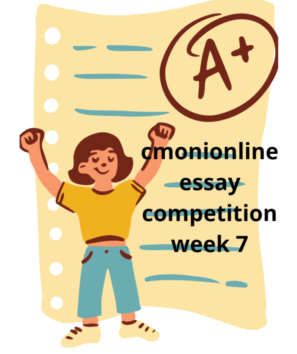I adjusted on my mattress and it was only then that I realized where I was when my skin came in contact with another body. I opened my eyes and struggled to adjust my eyes to the intensity of the ray of light coming in from the glass windows. Using the back of my palms to shield light away from my eyes, I had to get accustomed again to the place I have known all this while. I looked up at the calendar, “21st March, 2013”, it read loudly in my eyes.
The sleeping figures of my three roommates snoring heavily, the crows of the cocks in the neighbourhood which has served as our alarms ever since and the dim light struggling to feed off the remaining drop of kerosene in my lantern; there was really nothing special about this day but something kept tugging the line in my heart. I was super excited.
The previous day at school was one of the happiest of my school days. My name was announced during break as one of those whose application to join the school Press Club was approved. The school Press club wasn’t one of those clubs in the school you would just join, it would be out of merit. The President of the club then was our School Senior Prefect and it was such an honour for a Junior Secondary Two Student.
That morning, I was to give my first news casting. I had previously begged my roommate to help me with his phone so I can surf the internet and get some news. I was among the few students not privileged to own a smartphone then. I tapped John and he paused midway in his snores as if he had to pause and get an important revelation from whatever God that would reveal that to him. Tick, tick, few seconds breezed past and he continued with his snores, this time, with an aggravated aggression. I decided not to wake him quite yet and picked up his phone to surf for news as we had agreed on.
“The Literary Iroko Has Fallen”.
The first headline I saw poised a gigantic question, “Who could this be?”.
I have always loved literature although I knew that I would be offering science later in my Senior secondary days.
I stopped, scrolled back as I have already scrolled past it because I couldn’t get the image out of my head.
“…Chinua Achebe, author of, “Things Fall Apart, the most widely read book in modern African literature, is dead….”
At that moment, I was “No Longer At Ease” and a piece of me that glowed in admiration for the man that exposed me to the raw beauty of African literature felt broken as if pierced by an “Arrow…..”Born 16 November, 1930 in Ogidi, Anambra state, to Isaiah and Janet Achebe.
Achebe was just like every other Nigerian but with a more resolute decision to redefine the narratives.
Chinua Achebe was probably shaped by his parents storytelling abilities. In a time where folklores were still told under the moonlights, Achebe’s parents had a great impact in his career.
Achebe excelled in school and won a scholarship to study medicine (University college, now known as University of Ibadan) of which he later changed to English and literary studies.
As a voracious reader, Achebe’s contact with Joyce Cary’s work, “Mister Johnson”, shaped his pursuit of redefining narratives. He was not happy with the portrayal of Nigerian characters in the work and so strived to end such narratives and subsequently became a writer.
Chinua Achebe will always be remembered and celebrated by the literary community.
Chinua Achebe’s life has always been an inspiration to me and many much others in pursuing their goals.
The permanent mark he left in an era where Africans were disregarded even by literary works would never be forgotten. For this purpose, he dropped from his initial area of specialization in school.
Chinua Achebe brought African literature to the limelight. He portrayed the beauty of literature in simple and amplified narratives that could be understood by the common man. His works were not drowned in the river of ambiguity of words and feelings. He did pave a way for the African elites and future writers.
Socially, Chinua Achebe was a “man of the people”. During the Nigerian Civil war, Achebe dedicated his life to supporting and addressing the plight of the people of the eastern Nigeria, the defunct Biafra. Achebe appealed to America and other Europeans for aid when Biafrans were left to starve. After the war, as a chief, he continued in all his capacity to uphold the culture and tradition of his people.
He was also actively involved in politics but resigned due to the corruption in the Nigerian political system. People of his pedigree and nature would still be needed for the progress of our land.
One of his greatest attributes was the ability to identify and defend his race. Chinua Achebe’s criticism of Conrad’s “Heart of Darkness” is still being regarded as the best literary critic ever had. No one ever thought he could criticise the work of one who was held in awe in the western world’s literary cycle. Achebe described Conrad as a clear racist and that his work dehumanizes the good people of Africa. In a world full of racism and tribalism, Achebe stood out tall for his generation.
“We will never forget in a hurry”, I retorted while trying to at least write the news that would probably shatter the hearts of those who appreciated and loved his works in school.
Prince Chime wrote in from chimeprince2018@gmail.com






